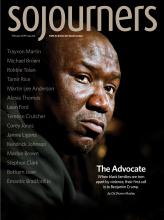I SPENT MOST of my childhood in a Methodist church, but I didn’t learn the liturgy. It was sung in Korean, and as soon as I started kindergarten, I exchanged fluency in my original language for assimilation. My parents did their best to teach my sister and me as much about our language and customs as they could, but they had to teach us in between their own assimilation for survival. It wasn’t until years later, when I was on a campus ministry team that sang from hymnals and overhead projectors, that I connected the Korean words of my church upbringing with a Korean-American faith.
As I’ve begun working through the personal cost of assimilation, I’ve looked at the price the church is paying for its own assimilation. At the sound of that, you may think that the rest of this column focuses on legalized abortion, same-sex marriage, and maybe even immigration and border security. Well, it does and it doesn’t.
I wonder if white evangelicalism has thought of itself as the underdog, the persecuted, and the eventual white savior in order to assimilate into a Western culture that glorifies winning, beating all odds, and rising as the unexpected hero. How can this country simultaneously be a Christian nation and persecute Christians? Neither is accurate, but both claims are invoked in modern politics and the rhetoric of white evangelicalism—where white evangelicals assimilate into a blind patriotism that ignores history and orthodoxy.
Read the Full Article

